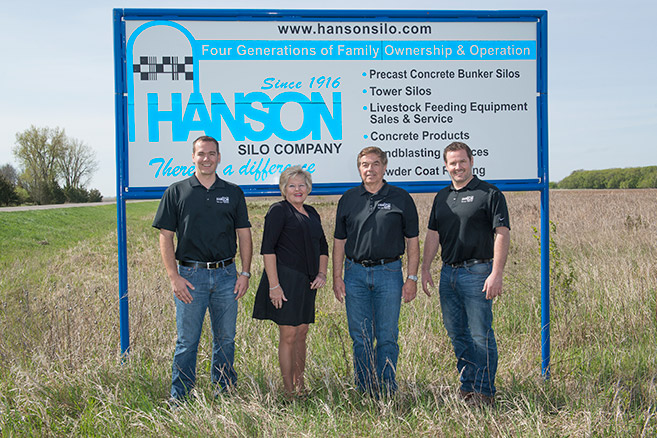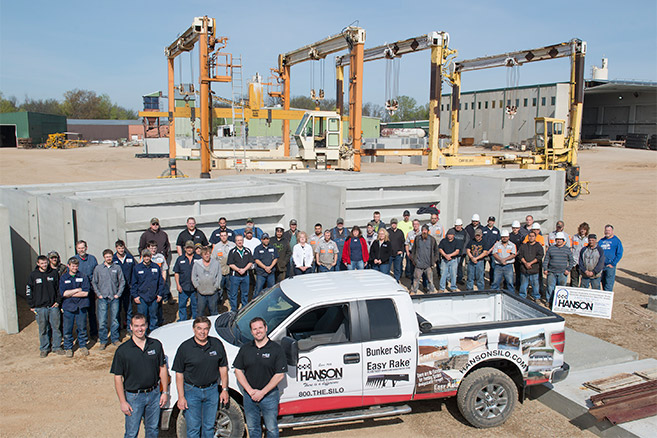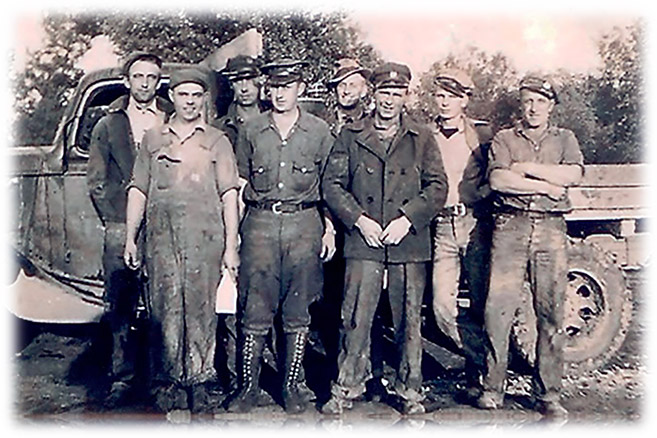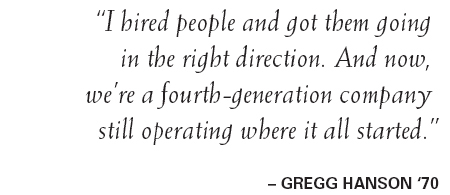


Gregg Hanson ’70 started working on an assembly line in his family business southeast of Willmar when he was 9 years old.
“I got paid 50 cents a day, and knew I had to hide if an insurance agent came to inspect,” said Hanson, who was too young to be on the payroll in 1957 but not too young to learn the family trade at the Hanson Silo Company, where he is now CEO.
By the time he graduated from high school, Hanson knew how to manufacture concrete silo staves and steel domed roofs, work in fabrication and weld. So he was fairly skilled when he enrolled in industrial technology at Bemidji State University in 1966.
“There were things that I could show the teachers how to do, especially with machine design and tooling,” Hanson said. “What was pivotal for me at BSU was learning how to design new products, improve manufacturing processes and organize a shop floor to improve efficiency and quality.”
Hanson’s grandfather, Emil Hanson, father of nine, founded the company in 1916 on his Lake Lillian farm. To supplement his farm income, he sold silos for a Willmar company, but the concrete staves, made with dirty aggregate, didn’t hold up well. Emil revolutionized concrete production when he realized he could use clean sand from lakeshore property he owned to make the material more durable.
With sand hauled by horse and wagon, the elder Hanson began building staves, at first to sell and then to build his own silos. He often traded for horses and livestock when customers lacked cash. As troops came home from World War I in 1918, farming boomed, and he built a small village — including mess hall, clothing store, shoe repair and drug store — on the farm to house his laborers.
“By 1937, my grandmother fed 100 people a day, six days a week, in that mess hall,” said Gregg Hanson, noting that the locals called the place “Hansonville.”
He grew up watching his father, Willard, and his Uncle Newell build on the innovations of his grandfather. They developed and patented the first domed silo roof in 1938, a self-propelled frozen silage chopper in 1949 and an automatic silage unloader in 1962. The company, which incorporated in 1962, expanded to four plants and at its peak employed 350 people and produced 1,100 silos a year.
In 1932 the Hanson brothers began deer hunting west of Bemidji, which is what attracted Hanson to Bemidji State. His BSU education proved valuable, especially what he gained from two of his industrial technology instructors. One of them, Dr. Richard Haugo, eventually served as interim BSU president.
“They were sharp guys who’d been involved in manufacturing in World War II,” Hanson said. “They knew what was required to transform a manufacturing floor — from making Studebakers to Army tanks — and how to get it done quickly. I’d take classes from those guys today if I could.”
When he returned from BSU, he used what he learned to start reinventing the company. He was barely 30 years old when he built a new manufacturing factory, consolidated four plants into one and found efficiencies. Those improvements later helped the company survive the 1980s agricultural crisis when many competitors went out of business.
Just out of college, Hanson met his wife, Linda, while digging a silo foundation on her father’s farm. She served lunch to his crew, and he managed to linger. They married in 1973 and raised three children — Matthew, Mary Kay and Michael.
100 years and thriving
Hanson Silo Company, still located on Emil’s farm site, will celebrate its 100th anniversary this year. The Hansons plan to honor the occasion with an open house from 11 a.m. to 7 p.m. June 16 at the Lake Lillian site.
Hanson runs the fourth-generation company with his sons, Matthew, president, and Michael, director of business development, marketing and sales. The sons credit their father for the company’s longevity.
“Sustainability over three generations is hard,” Michael said. “But if I had to narrow it to one top innovation for my dad, it would be his decision 21 years ago to start making flat-storage bunker walls. That’s had the most impact on the business.”
 Diversification has been important to Hanson. It’s a lesson learned from his grandfather, who operated his dairy farm well into the 1960s, even while his silo business flourished.
Diversification has been important to Hanson. It’s a lesson learned from his grandfather, who operated his dairy farm well into the 1960s, even while his silo business flourished.
Today, the company has 85 employees and specializes in livestock feed storage systems and handling equipment, grain storage and precast concrete products, including concrete insulated buildings and modular commodity storage walls. Two large powder-coat paint production lines also run two shifts a day to meet the demand for a quality coating.
“It’s been a fun challenge,” Hanson said. “I hired the right people and got them going in the right direction. And now, we’re a fourth-generation company still operating where it all started.”
While the company is steeped in history, Hanson has kept his eye on the future. He used what he learned at Bemidji State to build a more efficient and sustainable company, one well positioned for the next generation.
